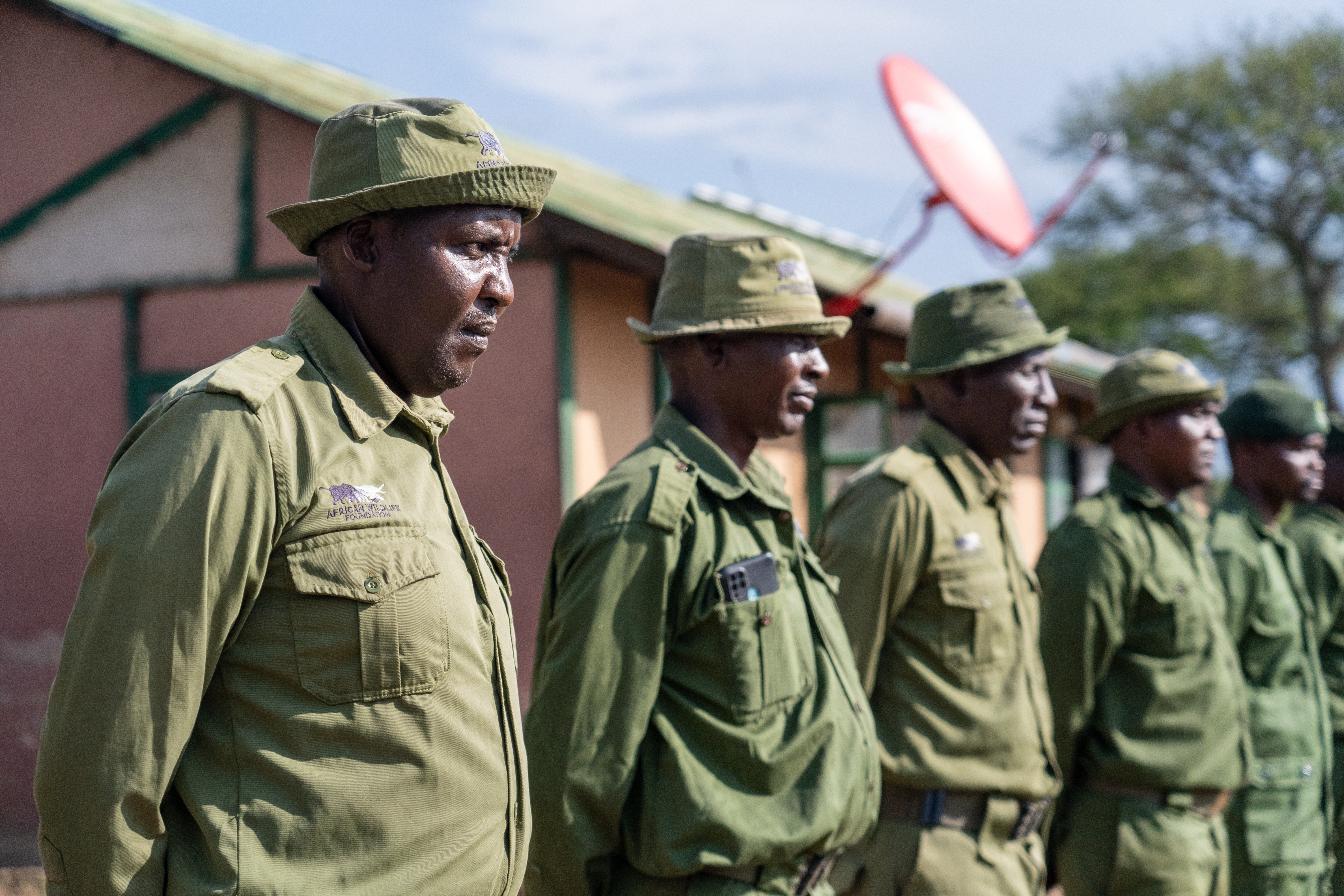AWF Empowers Africa's Rangers on the Conservation Frontlines

Rangers in Manyara Ranch
In the lead-up to World Ranger Day, the African Wildlife Foundation (AWF) highlights the indispensable role of rangers and community scouts in safeguarding Africa's wildlife and wild lands. These dedicated individuals are the first line of defense, tirelessly patrolling protected areas, monitoring wildlife, and engaging communities. Their work is essential for preserving Africa's unique biodiversity.
Rangers and Community Scouts
Throughout Africa, Rangers and community scouts are the backbone of conservation, safeguarding, and managing protected and conserved areas. While both roles are vital, distinct differences exist.
- Rangers are typically highly trained professionals with law enforcement and wildlife management expertise. Employed by government agencies, they possess broader authority, including arrest powers, to combat poaching, conduct research, and manage wildlife populations. Examples include Kenya Wildlife Service rangers and eco-guards in Central Africa.
- Community Scouts or Community Rangers are often recruited from local communities and bring invaluable indigenous knowledge of the land and its wildlife. They collaborate with rangers, bridging the gap between conservation and local people. Key responsibilities include monitoring wildlife, reporting suspicious activities, and community outreach. Community conservancies, like Lumo Conservancy, often employ community scouts.
Honoring Rangers
World Ranger Day is an opportunity to recognize the exceptional efforts of rangers on the front lines of conservation. According to the International Ranger Federation (IRF), at least 140 rangers have tragically lost their lives in the line of duty since the last World Ranger Day, with a staggering 30% of these deaths occurring in Africa. The upcoming “State of the Ranger Report” will provide a first-ever global assessment of the ranger profession, highlighting critical challenges such as inadequate training, health and safety risks, and insufficient resources.
AWF's Commitment to Empowerment
AWF recognizes the critical role of well-trained and equipped rangers in safeguarding Africa's wildlife. Since 2015, AWF’s Counter Wildlife Trafficking (CWT) program has trained over 2,459 wildlife agency officials across the continent.
In 2023 alone, we reached over 400 officials from five countries, building capacity within organizations like Kenya Wildlife Service, Uganda Wildlife Authority, Ethiopian Wildlife Conservation Authority, Institut Congolais pour la Conservation de la Nature, Tanzania National Parks Authority, and Tanzania Wildlife Management Authority. To further strengthen community engagement, AWF empowered 177 community scouts with essential training and equipment in the same year.
As AWF’s Counter Wildlife Trafficking Director Didi Wamukoya emphasizes, "Rangers are the unsung heroes of conservation. They bridge the gap between science and local communities while risking their lives to protect biodiversity. Without their tireless dedication, Africa's iconic wildlife would face extinction."
AWF's Collaborative Efforts
AWF collaborates with governments, communities, and the private sector to sustain wildlife and habitats. With support from partners, AWF equips rangers and scouts with essential tools for wildlife protection, ranging from boots and fuel to ecological monitoring technology. AWF’s support also includes training rangers to monitor the state and health of wildlife populations, use data-driven analytics and geospatial technology, adopt a rights-based approach to conservation, and respond to human-wildlife conflict.
AWF in Action
AWF is committed to building a strong foundation for conservation across Africa by empowering rangers and communities. Our work aligns with the urgent call to action of World Ranger Day 2024's "30 by 30" theme. To achieve this ambitious goal, we are taking concrete steps to protect wildlife and support those on the frontlines.
Our Impact
- Strengthening Anti-Poaching Efforts: AWF is combating poaching and illegal wildlife trafficking in critical regions like the Democratic Republic of Congo (DRC) and Zimbabwe. By providing financial and technical support to rangers and equipping them with essential tools, we are helping to protect iconic species such as bonobos, chimpanzees, and elephants.
- Fostering Human-Wildlife Coexistence: In Uganda’s Kidepo landscape, AWF is empowering communities to live peacefully with wildlife through training and equipment for community wildlife scouts. By addressing human-wildlife conflict, we are creating a harmonious coexistence between people and nature.
- Improving Ranger Welfare: AWF is dedicated to improving the working conditions of rangers. By upgrading facilities like the Twiga Security Camp in Kenya's Taita Wildlife Conservancy, we are ensuring that those on the frontline of conservation have the support they need.
- Enhancing Wildlife Crime Investigation: AWF is supporting law enforcement agencies in East Africa by providing training in DNA analysis and conducting community outreach programs. These efforts are crucial for solving wildlife crimes and deterring future offenses.
Through these initiatives and others, AWF is making a significant impact on wildlife conservation and community development in Africa. We are committed to working with partners to create a sustainable future for both people and wildlife.